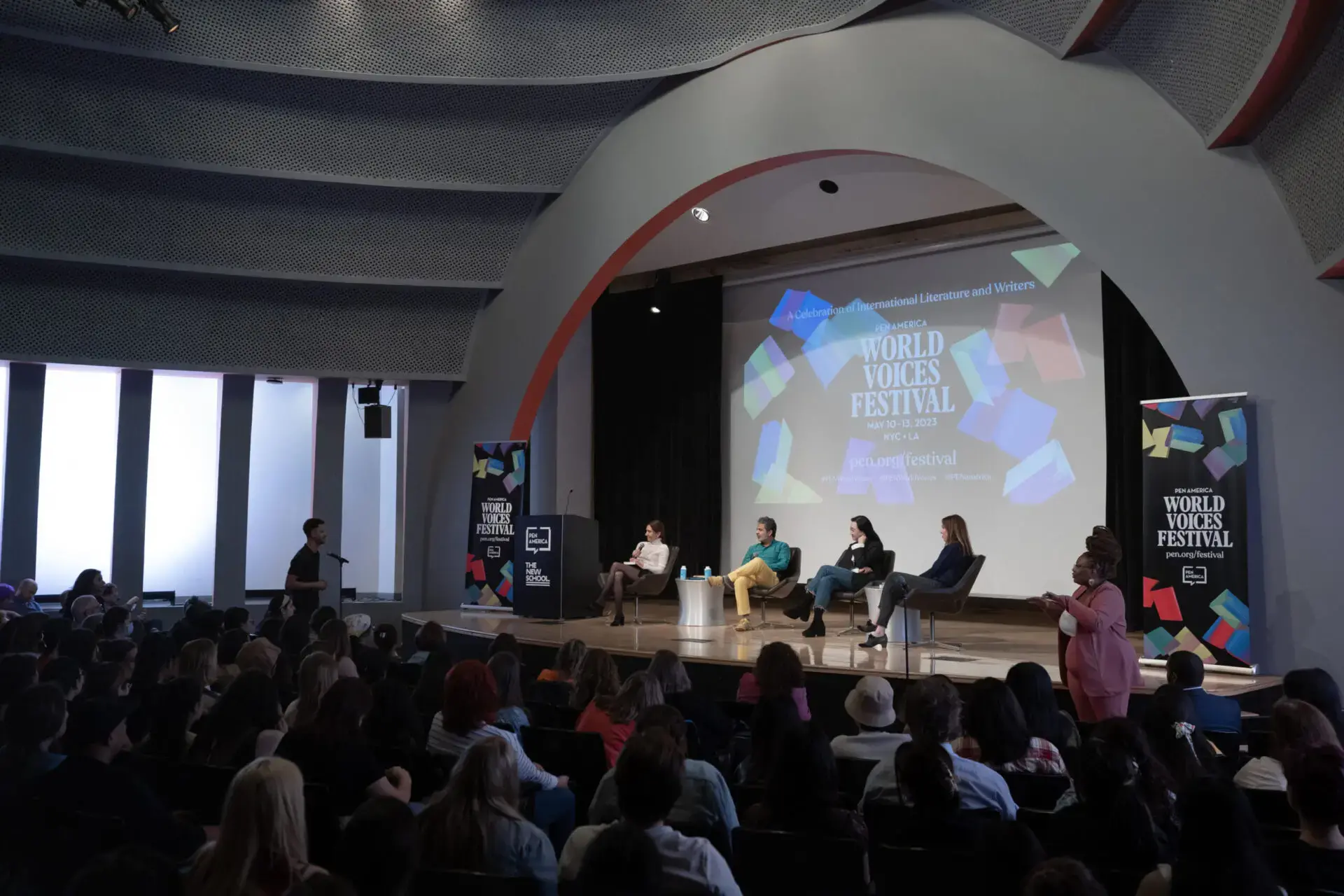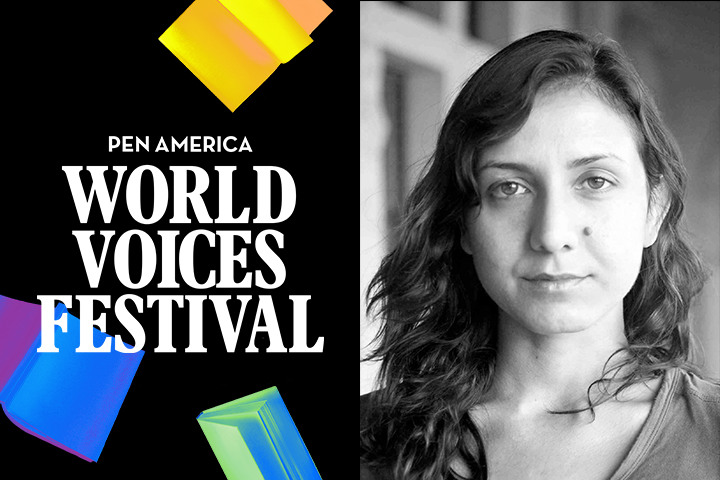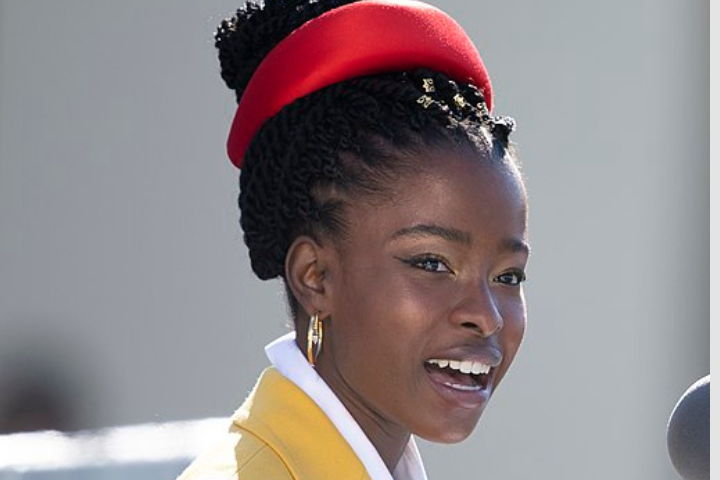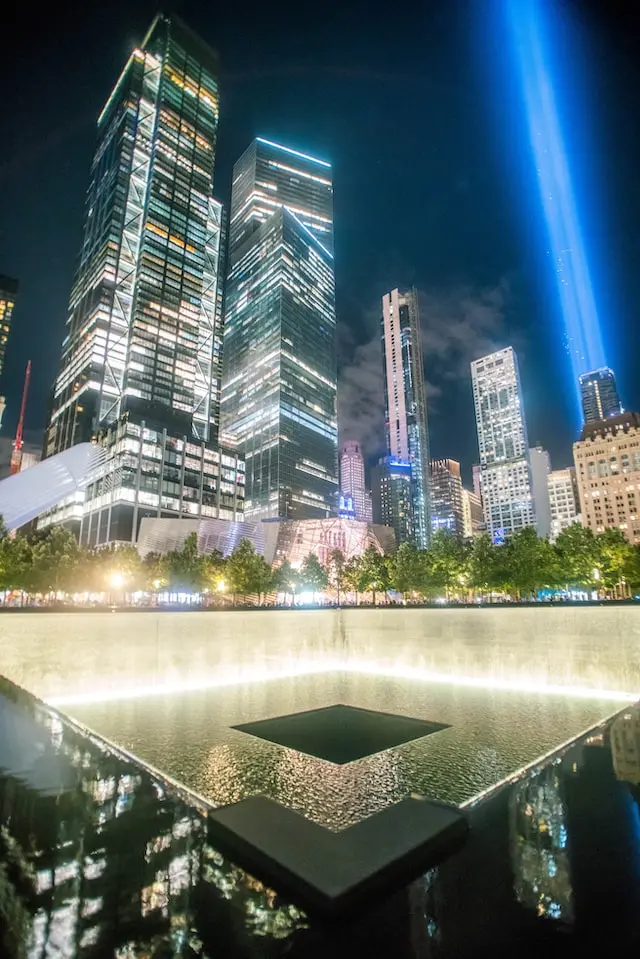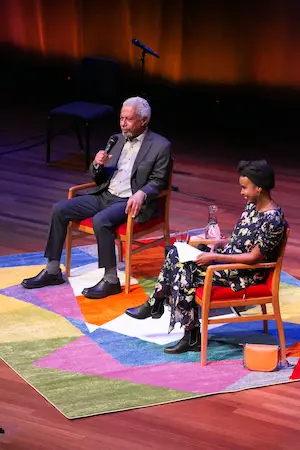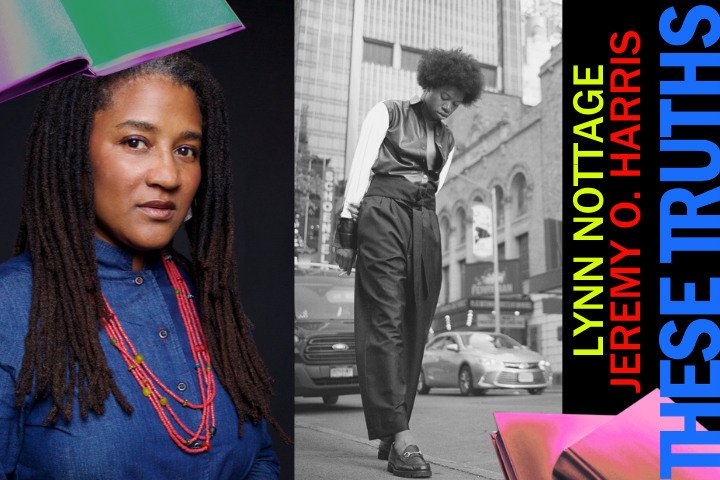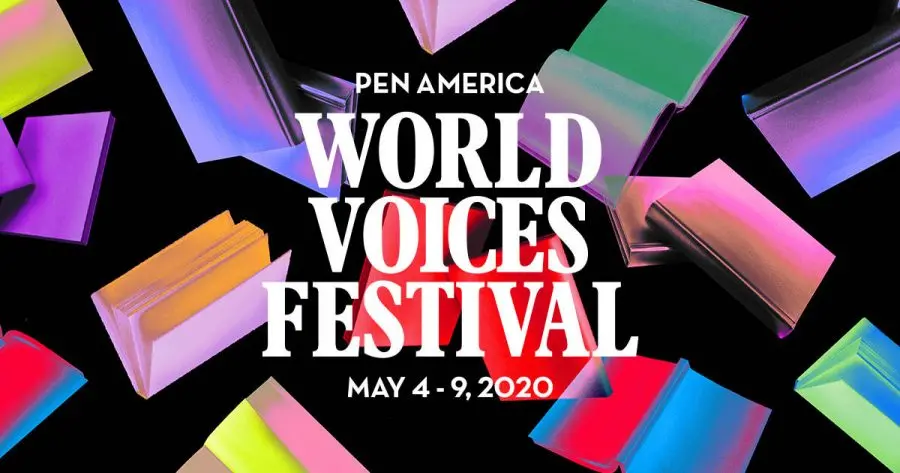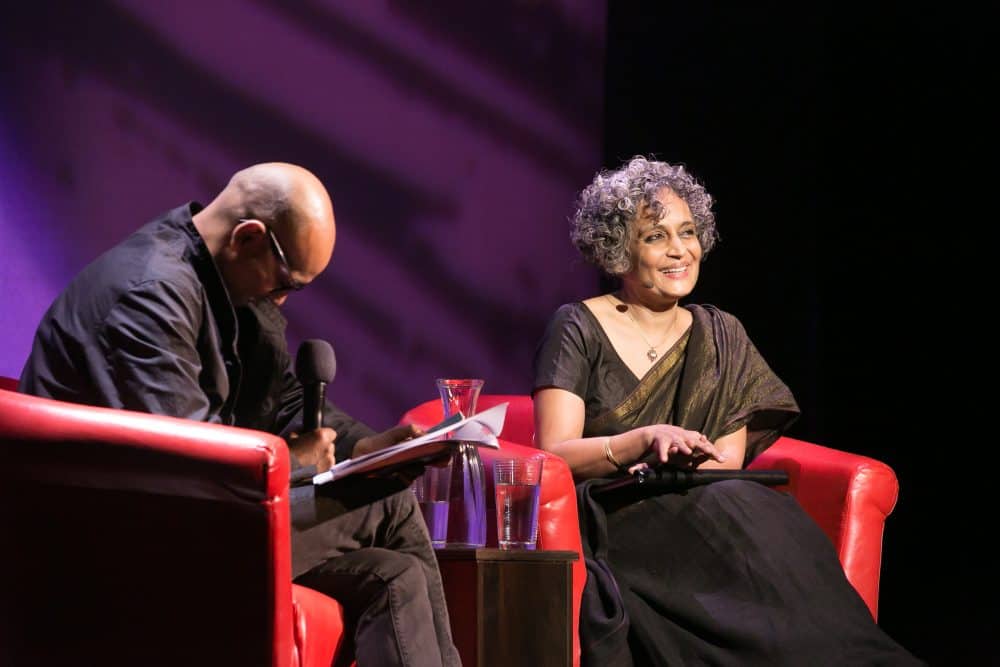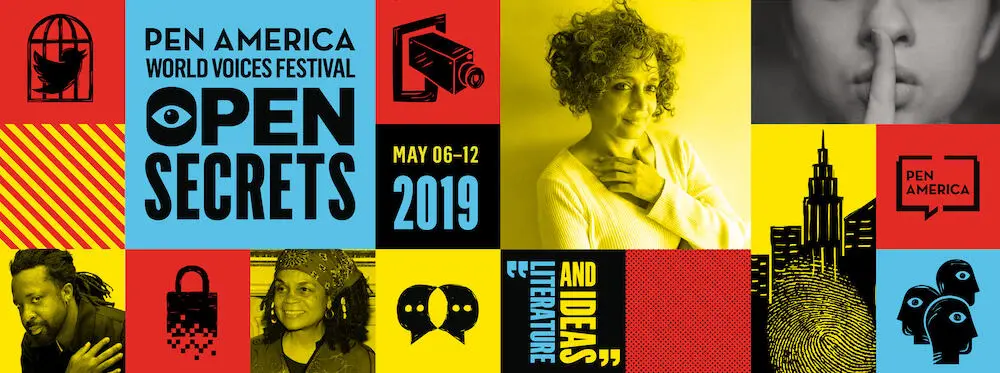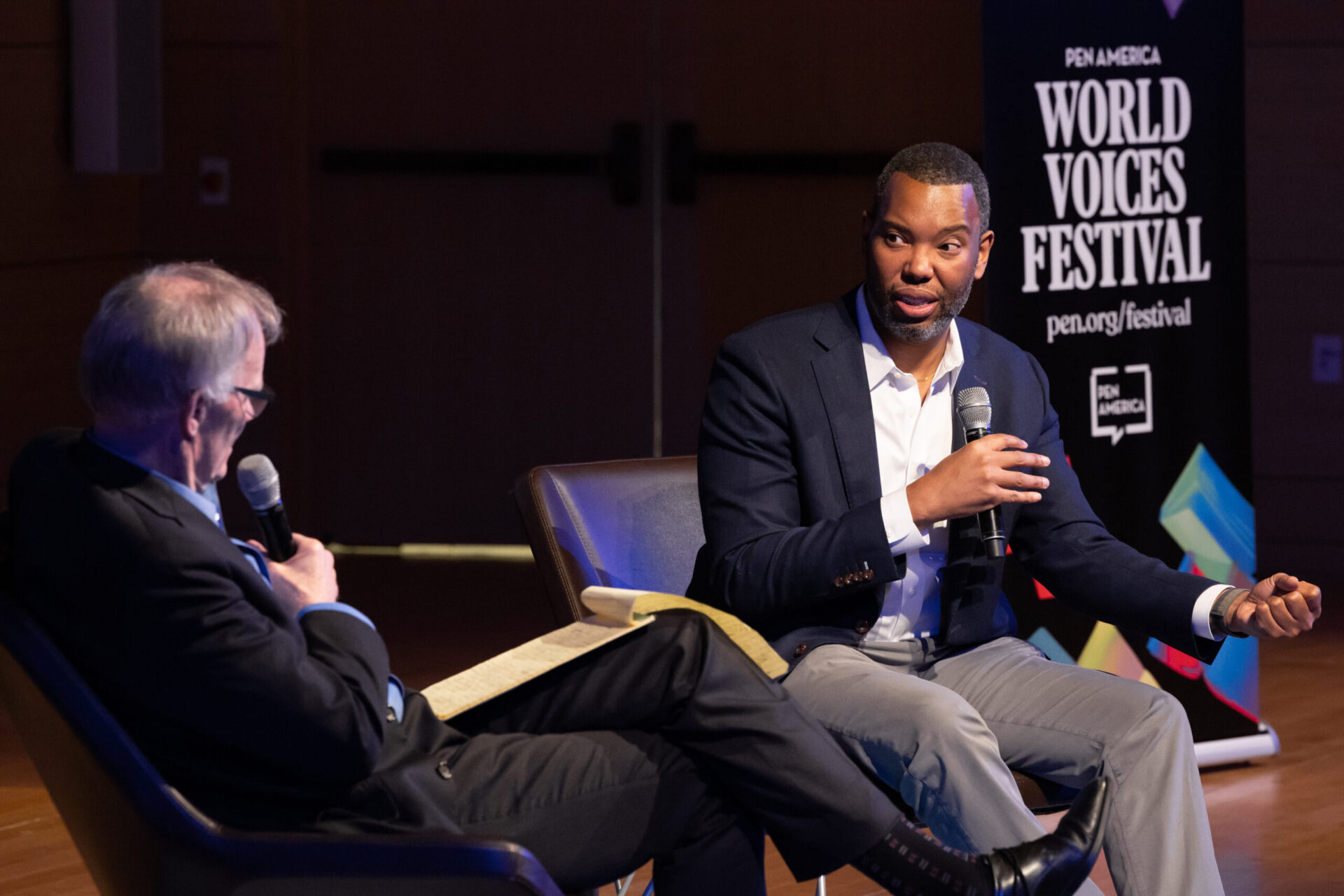
Ta-Nehisi Coates delivered the keynote Arthur Miller Freedom to Write lecture on Thursday at PEN America’s 2023 World Voices Festival, a celebration of international literature featuring more than 100 writers from 27 countries.
PEN America President and festival Chair Ayad Akhtar also spoke to Eboo Patel in a conversation called Matters of Offense, about the tension between protecting marginalized groups and freedom of expression, among eight events packed with literary powerhouses.
PEN AMERICA AND LUSH COSMETICS PRESENT THE BANNED BOOK LIBRARY
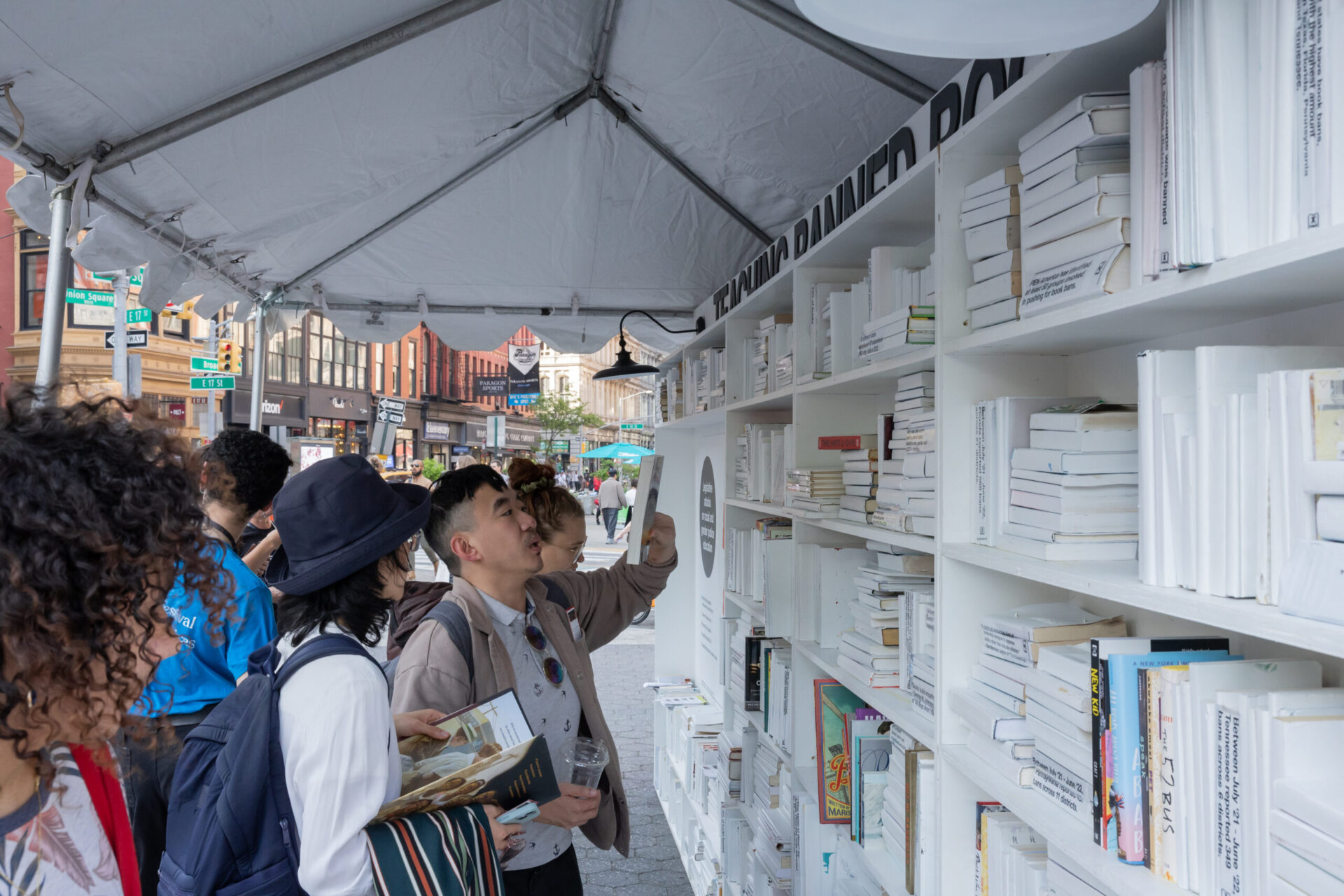
This interactive, free public art installation detailed the rise in book bans across the United States. PEN America and Lush Cosmetics shared information on the recent rise in book bans.
TRANSLATION SLAM
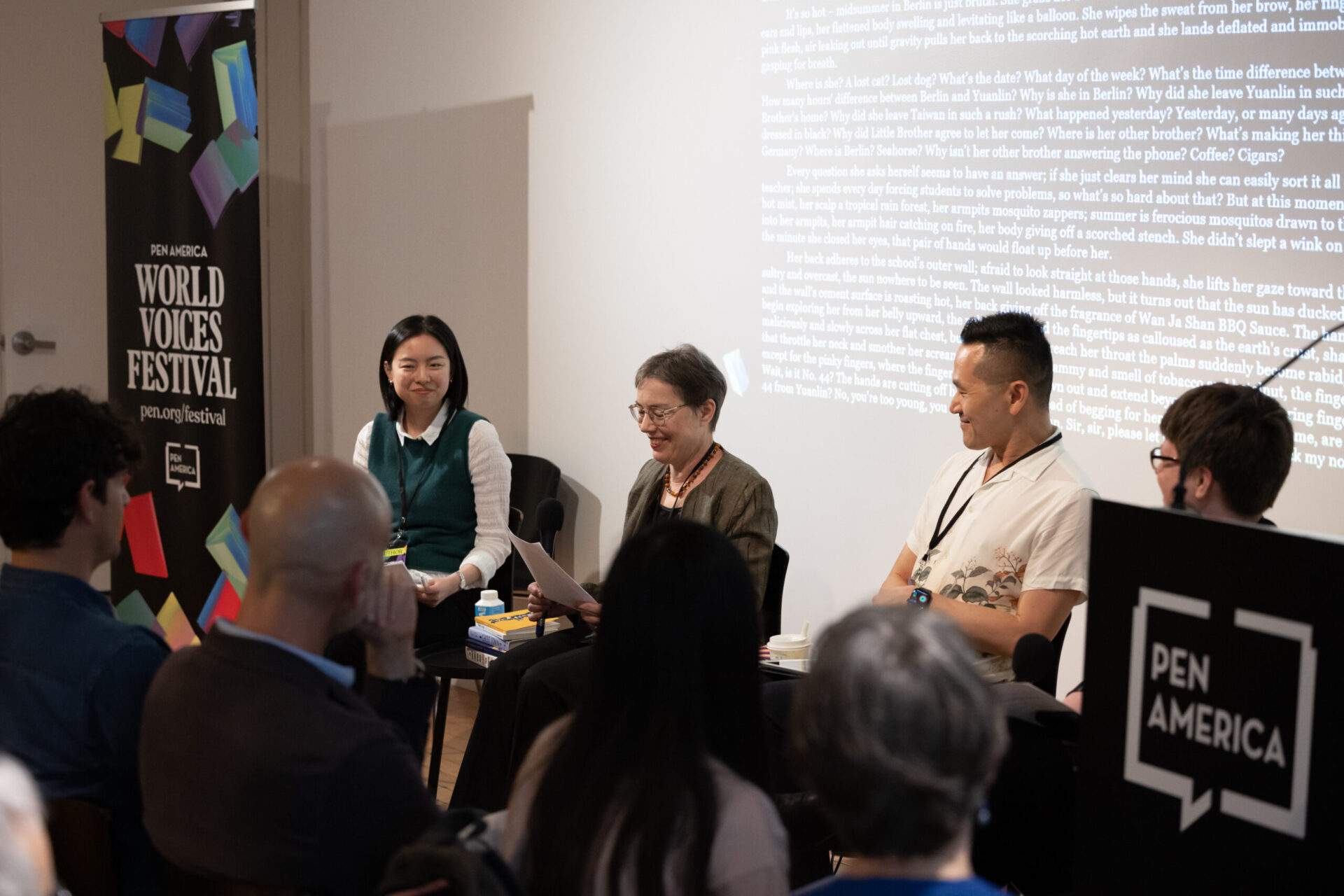
Hosted by PEN America Translation Committee Co-Chair Annelise Finegan, the Translation Slam featured previously untranslated work from authors Kevin Chen (Ghost Town) and Maria Fernanda Ampuero (Human Sacrifices). Translating Ampuero’s work from Spanish were Samantha Schnee and D.P. Snyder. Translating Chen’s work from Chinese were Stacy Mosher and Lin King.
THE AFFORDABILITY CRISIS AND FUTURE HOPE
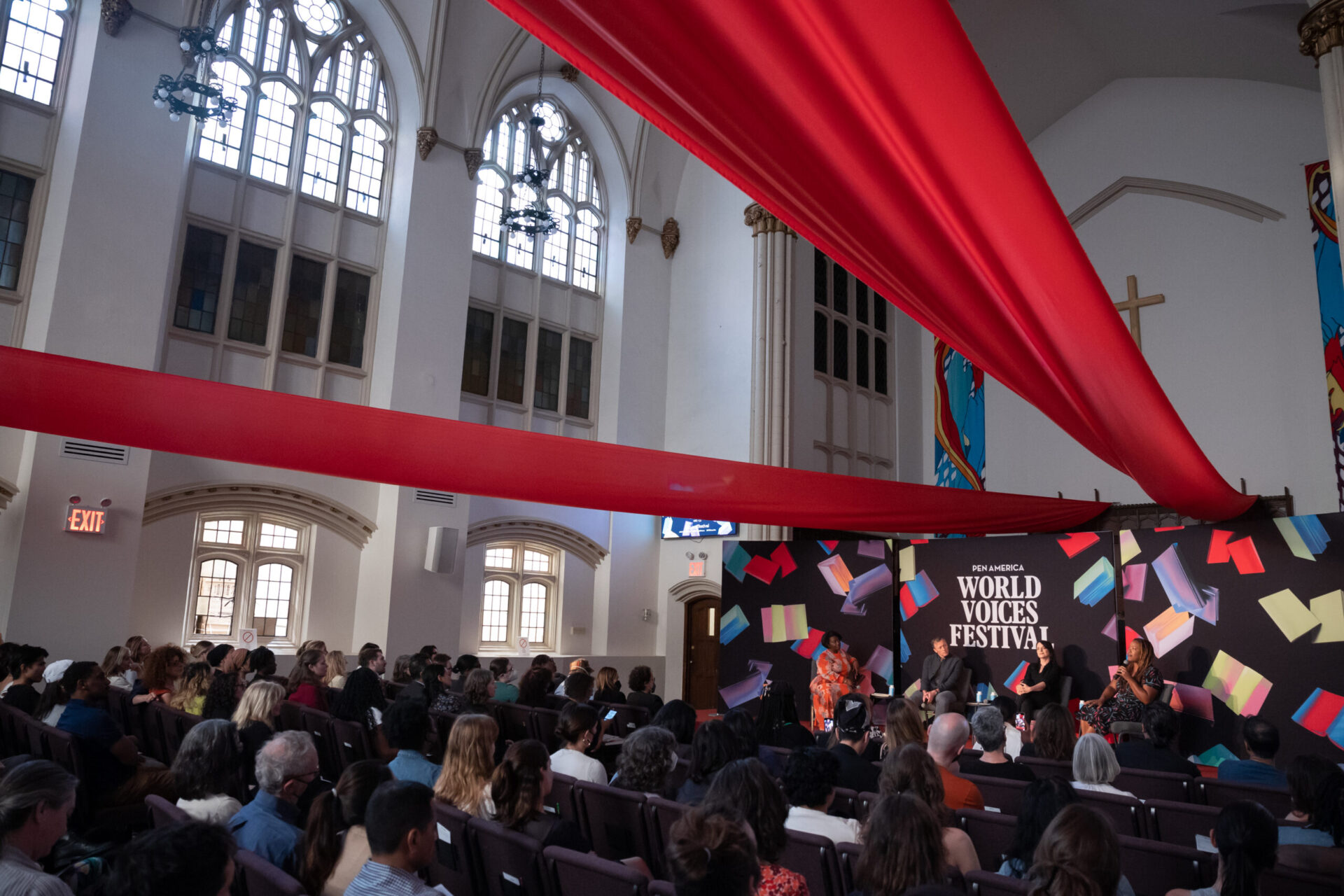
Pulitzer-Prize winning sociologist Matthew Desmond (Poverty, by America); policy advocate and New York Times bestselling author Heather McGhee (The Sum of Us) and Alissa Quart, executive director of the economic hardship reporting project, joined moderator Tressie McMillan Cottom, a sociologist, New York Times columnist, and Thick: And Other Essays to address the current global cost of living crisis that is fueling a staggering rise in inequality.
THE PAST’S PRESENCE
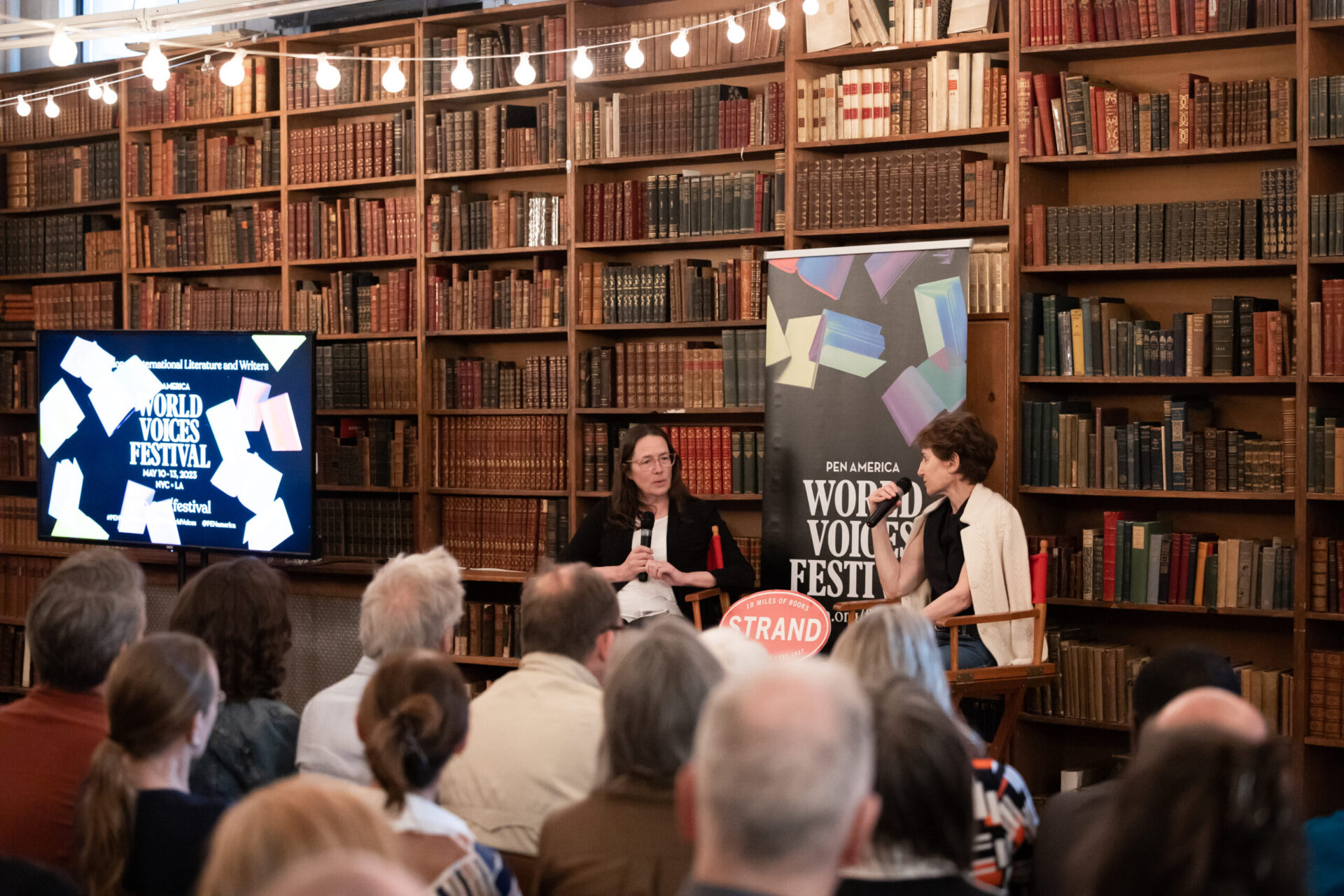
Historians Stacy Schiff (The Revolutionary: Samuel Adams) and Heather Cox Richardson (How the South Won the Civil War: Oligarchy, Democracy, and the Continuing Fight for the Soul of America) discussed the impact of historical narrative, the chilling ways educational gag orders could abridge and obscure historical record—and how we might keep telling these most essential of stories.
OFF-KILTER: FAIRY-HORROR-TALES IN THE 21ST CENTURY
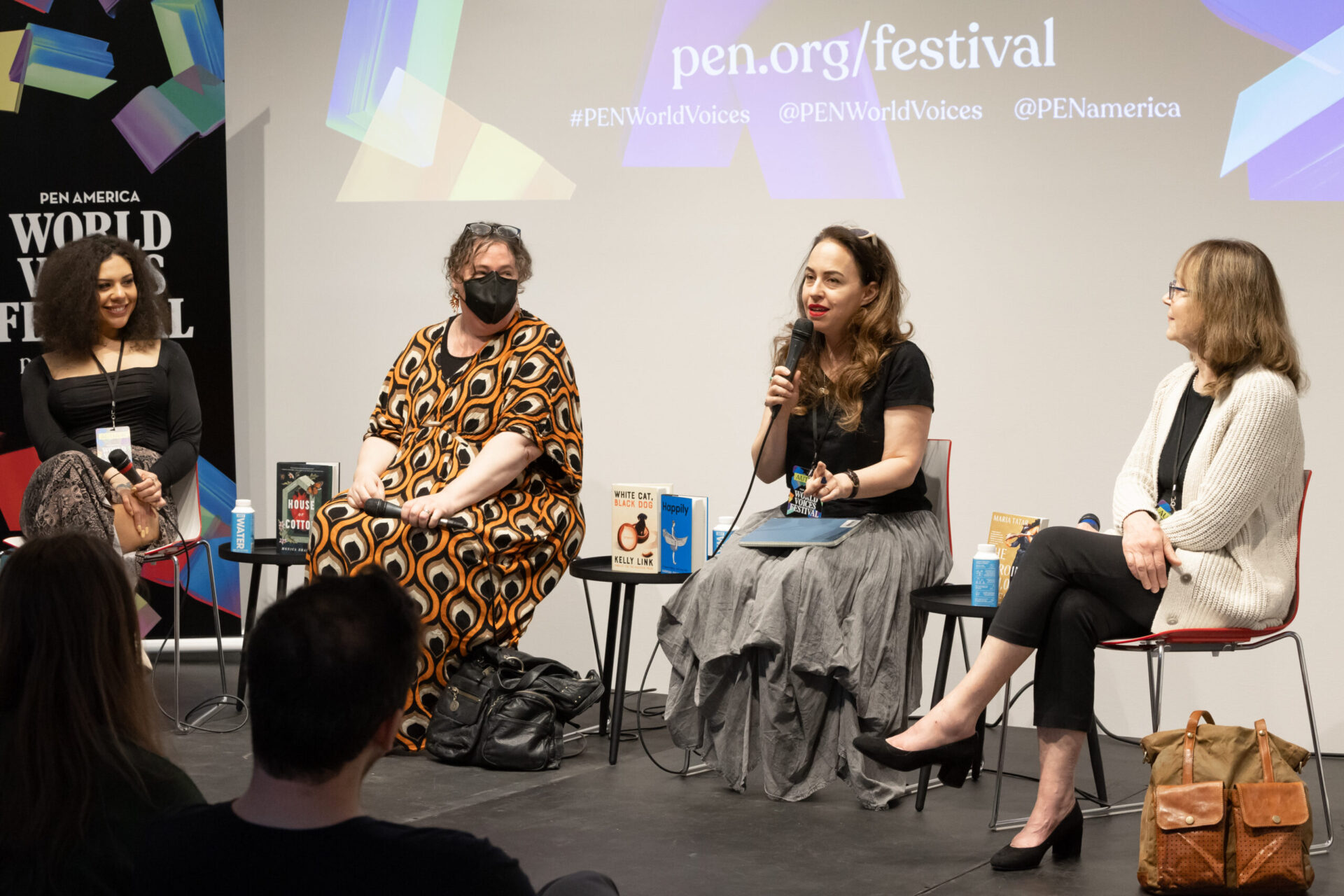
Pulitzer Prize Finalist Kelly Link (White Cat, Black Dog), award-winning writer and poet Sabrina Orah Mark (Happily), debut novelist Monica Brashears (House of Cotton), and moderator Harvard professor Maria Tatar (The Heroine with 1001 Faces) discussed how the surreality of life today illuminates the fairy-tale highs and horror story lows of what it means to be living in the 21st century.
Brashears said her interest in horror came from “Appalachian tales that my mom would tell us growing up of ghosts of scorned women and how they would come back and get revenge. And also being raised Southern Baptist, which was just scary on its own. I think horror is helpful in exploring themes of trauma, generational or personal trauma. It opens a door to make sense of people who are monsters.”
“Fairy tales are kind of a shared language,” Link said. “If you say ‘Once upon a time,’ everybody knows that you are at least playing with the idea of a fairy tale. If I say ‘Does anybody have a true ghost story?’ most people, even if they don’t have a true ghost story, will have a true story that somebody told them. So it’s kind of a communal storytelling, a communal language.”
Mark discussed the way retellings of fairy tales invited courage in telling her own story. “Talking about this idea of the fairy tale as an old wives tale, it felt to me like the fairy tale was almost like the hands of a thousand very old women reaching out and guiding me and saying ‘It’s okay to tell your story.’”
“I found that fairy tales, because of the dark subject matter, kind of allow the space for lightness,” Brashears said.
MATTERS OF OFFENSE: AYAD AKHTAR & EBOO PATEL
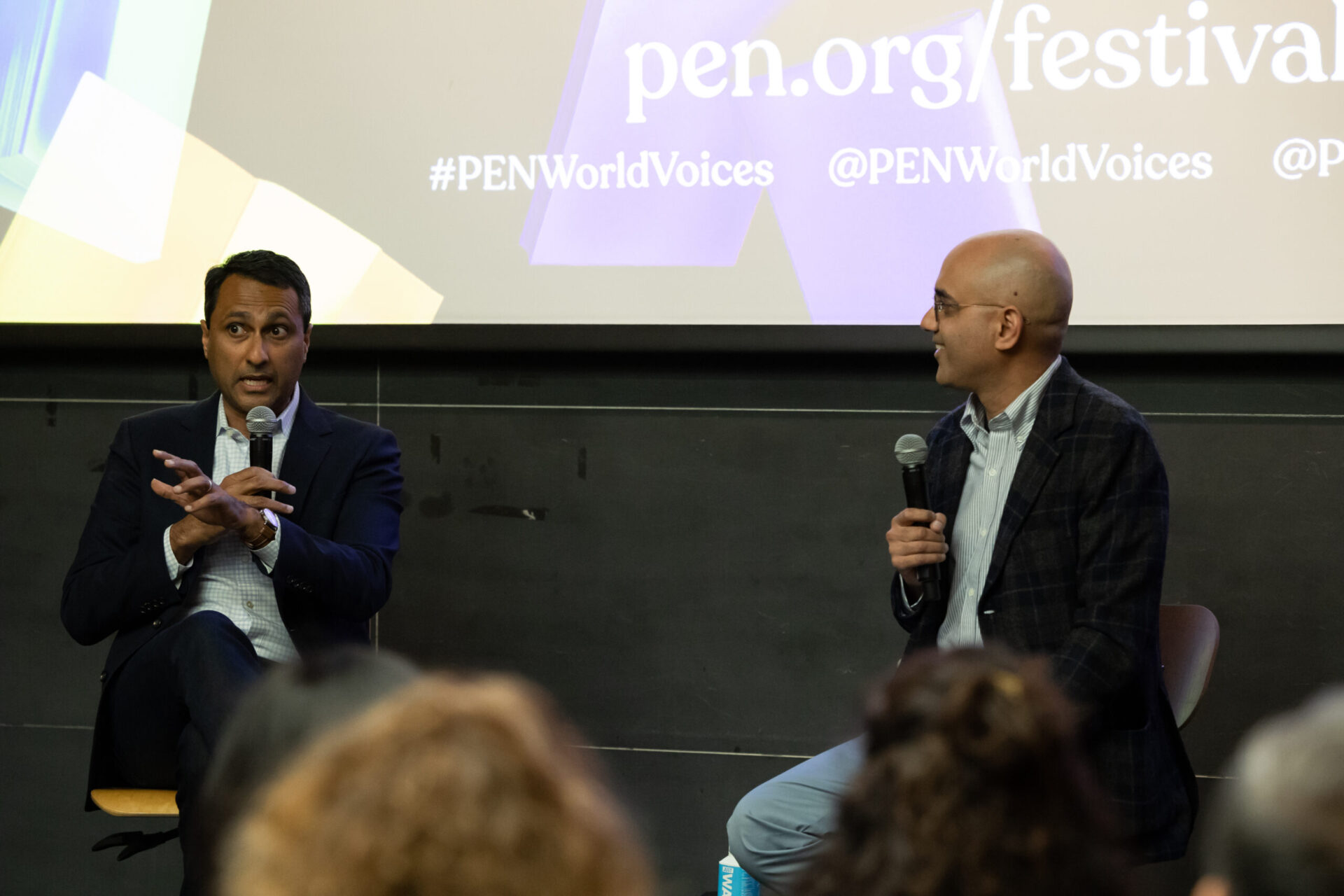
Ayad Akhtar (Homeland Elegies), the Pulitzer Prize-winning playwright, novelist, and President of PEN America and Interfaith America Founder and President Eboo Patel (We Need to Build) explored the tension between protecting marginalized groups and freedom of expression.
They discussed the recent case at Hamline University, which purportedly ended an adjunct professor’s contract for showing a class images of medieval and Renaissance art depicting the Prophet Muhammad — art that is considered sacrilege to some Muslims, but holy to others.
They discussed how claims of marginalization and harm can stop a conversation in its tracks, creating a victim and a perpetrator. Akhtar said a claim of harm cannot outweigh freedom of speech.
“I do believe the freedom to imagine, to write, to think, to know is absolutely sacrosanct,” he said.
EARTHLY DELIGHTS: HISTORY, RACE AND ENVIRONMENTAL CONSCIOUSNESS
Poet Camille Dungy (Four Centuries of African American Nature Poetry) and environmentalist Leah Thomas joined in conversation at the California African-American Museum. Dungy said African American engagement with nature and specifically the environmental movement “is Inseparable from questions of social justice.”
“There has been a diminishment of who can be an environmentally engaged person because the vision of who does that work has actively and purposely excluded you,” she told the audience.
Thomas, noting that George Washington Carver, the black inventor, was the father of modern regenerative agriculture, said: “I want every black child to show up in nature and say I belong here.”
She added: “Black joy in the outdoors is deeply important.”
Along with many advocates for native plants, Dungy views gardening as an activist activity. “I get to do work that changes things. All of a sudden birds and butterflies and insects that I don’t see in other places are coming into my yard. It is quite literally saving the world, one plot of land at a time.”
ARTHUR MILLER LECTURE: TA-NEHISI COATES
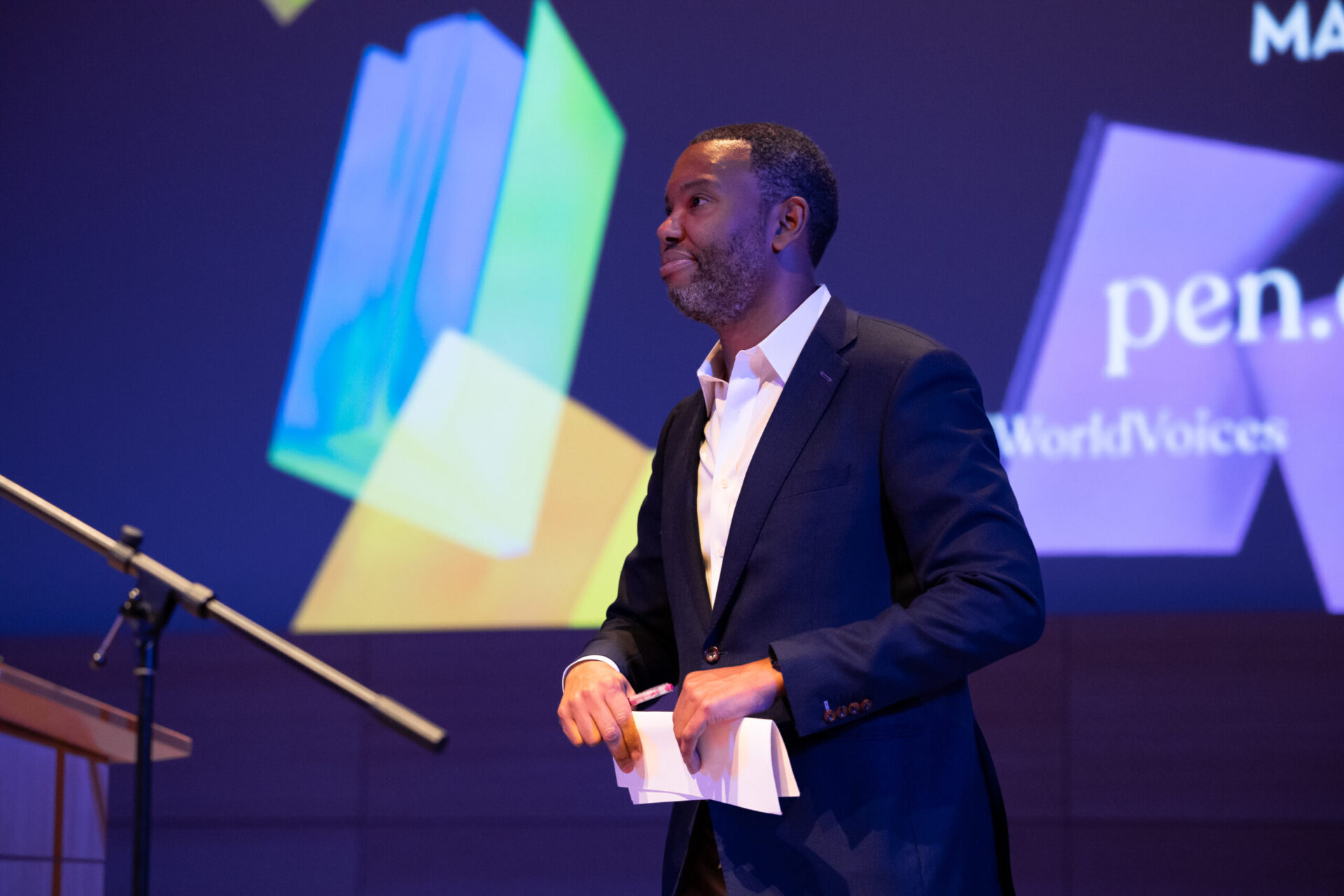
In the Festival’s keynote lecture, Ta-Nehisi Coates placed the censorship now sweeping the United States into a larger historical legacy, and stressed the need to consider free speech as part of a constellation of rights that are under attack, including bodily autonomy and voting rights.
“I don’t know if there has ever been a moment in history where people are unfree and can see it,” he said. “The information is right in front of us. The awareness is unsettling.”
Addressing the idea that the answer to hate speech “is more speech,” and that when some groups take up censorship it will inevitably be turned against them, he said: “But when hate speech has a gun, when hate speech has an army,” the idea may not take violence into account.
Looking back through history, he said the current spread of book bans and censorship was not new. “None of this is new. This is as old as the slave codes.”
He noted that during the 1600s, enslaved people were banned from meeting together, that during the 1700 teaching enslaved people to read was outlawed and that the main targets of the Ku Klux Klan were schools and churches.
In reaction to the fact that his own books have been banned in schools, he said: “If my work was not considered, dare I say, ban-worthy, then maybe it’s not worthy at all.”
He was joined in conversation by Yale University historian David Blight, who probed Coates’ views on cultural appropriation, trigger warnings and whether white authors should be free to write Black history, or conceive Black characters in fiction.

